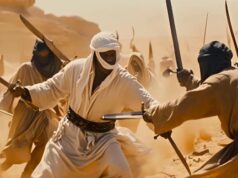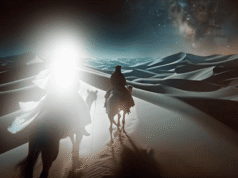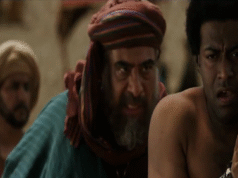How a Miracle Protected the Kaaba—and Prepared the Way for Prophethood: Episode 6 | The Final Dawn Series
In this chapter of The Final Dawn, we turn to one of the most legendary moments in pre-Islamic Arabia. A time when elephants marched on Makkah with destruction in their wake… only to be stopped not by swords, but by the unseen power of Allah. This is the story of the Year of the Elephant—the same year the Prophet Muhammad ﷺ was born.
The Threat from the South
Far away in Yemen, a powerful governor named Abraha had grown tired of seeing the hearts and wealth of pilgrims drawn to the Kaaba in Makkah. To challenge this, he built a majestic cathedral in Sana’a, hoping to redirect religious attention toward his territory.
But the Arabs didn’t budge.
The Kaaba was more than stone and ritual—it was legacy, history, and reverence passed through generations. When someone desecrated Abraha’s cathedral in protest, he took it as a direct insult. He vowed revenge. And with that, he assembled an army—one that included war elephants—and set out to destroy the Kaaba.
An Unlikely Meeting
As Abraha’s army thundered north, fear spread like wildfire. Elephants had never been seen in Arabia before, and people fled in terror. Along the way, his men seized livestock, including 200 camels belonging to Abdul Muttalib—the noble grandfather of the Prophet Muhammad ﷺ.
When Abdul Muttalib heard of this, he did not panic. Instead, he sought a meeting with Abraha. Many expected him to plead for the Kaaba’s safety.
But Abdul Muttalib calmly asked only for his camels.
Abraha was confused. “I thought you’d be pleading for your sanctuary, not your animals,” he said.
But Abdul Muttalib responded with words that would echo through time:
“I am the owner of the camels. As for the House—
It has its own Lord to protect it.”
A City in Prayer
While Abraha prepared to strike, Abdul Muttalib rallied his people. He reminded them that the Kaaba belonged to Allah, not to men. The people of Makkah evacuated to the surrounding hills, praying and placing their trust in divine protection.
And that protection came—not from spears or shields, but from the sky.
When the army approached, the elephants refused to move. No amount of force or direction could make them advance toward the Kaaba. Suddenly, the sky darkened, and flocks of birds descended—each carrying small stones.
What followed was swift and shocking.
The stones fell like divine arrows. Abraha’s army was devastated. The once-mighty force crumbled without a single hand raised in its defense. It was a clear, unforgettable sign: The Kaaba was under Allah’s protection.
A Year Like No Other
That year would forever be known as Aam al-Feel—the Year of the Elephant. But its miracles didn’t end with the army’s defeat.
In that very same year, in the quiet corners of Makkah, Amina, the wife of Abdullah, gave birth to a boy.
His name was Muhammad ﷺ.
While one story closed with divine power silencing arrogance, another began with the birth of a mercy who would reshape the course of human history. This moment, filled with both cosmic power and quiet beginnings, symbolized the transition from the old world of tribal rivalries and superstition into a new era of light, purpose, and divine revelation.
The Message Between the Lines
The Year of the Elephant was more than a historical event. It was a message to Makkah—and to the world—that the Kaaba was not just a sacred structure, but a symbol of a coming truth. That those who stand with Allah never stand alone. And that trust in the unseen can move mountains—or stop elephants.









